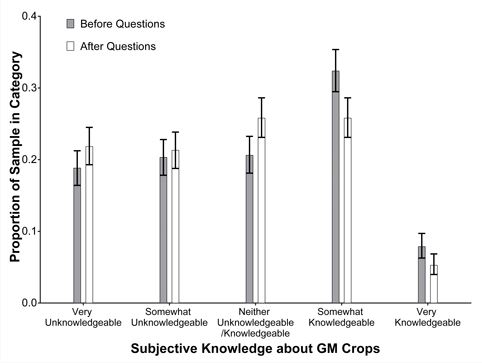Consumers are aware of genetically modified crops but their knowledge level is limited and often at odds with the facts, according to a new paper in the FASEB journal.
Last year, Brandon McFadden, an assistant professor of food and resource economics at the UF Institute of Food and Agricultural Sciences, published a study that showed scientific facts scarcely change consumers’ impressions of genetically modified food and other organisms.
Consumer polls are often cited in policy debates about genetically modified food labeling. This is especially true when discussing whether food that is genetically modified should carry mandatory labels, McFadden said. In conducting their current study, McFadden and his colleague, Jayson Lusk, an agricultural economics professor at Oklahoma State University, wanted to know what data supported consumers’ beliefs about genetically modified food and gain a better understanding of preferences for a mandatory label.
So he conducted the survey to better understand what consumers know about biotechnology, breeding techniques and label preferences for GM foods.
Researchers used an online survey of 1,004 participants that asked questions to measure consumers’ knowledge of genetically modified food and organisms. Some of those questions tried to determine objective knowledge of genetically modified organisms, while others aimed to find out consumers’ beliefs about genetically modified foods and crops.
The results led McFadden to conclude that consumers do not know as much about the facts of genetically modified food and crops as they think they do.

Source: FASEB journal
Of those sampled, 84 percent supported a mandatory label for food containing genetically modified ingredients. However, 80 percent also supported a mandatory label for food containing DNA, which would result in labeling almost all food.
“Our research indicates that the term ‘GM’ may imply to consumers that genetic modification alters the genetic structure of an organism, while other breeding techniques do not,” McFadden said.
As participants answered questions designed to measure their knowledge of scientific data on genetic modification, respondents seemed to change their statements about the safety of genetically modified foods, McFadden said.